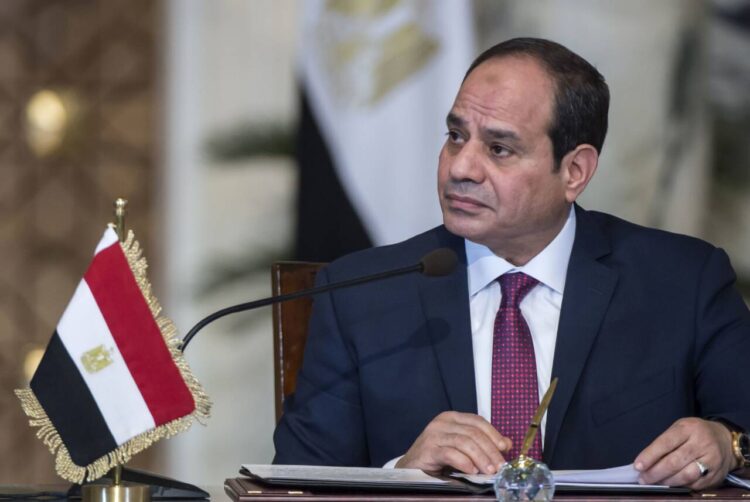Egypt’s president Abdel Fattah El Sisi begins his third term this week buoyed by the massive fresh financing, but experts say the road out of the economic crisis will still be long arduous. Speaking before parliament, El-Sisi promised to “remain faithful to my work, my eyes seeing only your interests and this country.”
Sisi won December 2023 presidential elections with 89.6 percent vote. He is set to begin his third term officially on April 3, 2024 to contain the fallout and from two years of punishing economic crisis and dire foreign currency shortages. Local Media reported that he will swear the oath before parliament on April 2, 2024.
This six-year term is set to be the 69-year-old last, unless another constitutional amendment again prolongs his tenure. As 2024 began, the Arab world’s most populous country seemed to be hurtling towards default an economic collapse analysts said before it suddenly received more than 50 billion USD in loans and investments.
Within weeks, the United Arab Emirates announced a 35 billion USD land development deal for Egypt’s Ras-al-Hikma, the International Monetary Fund (IMF) more than doubled a three million USD loan and the World Bank and the European Union inked fresh financing agreements.
The massive bailout has saved Egypt from falling into the abyss, according to the former deputy PM Ziad Bahaa-Eldin. But concern has mounted that without major reform, Egypt could still find itself into a new cycle of crisis.
El-Sisi came to power after the overthrow of the country’s first popularly elected president Mohamed Morsi. He was re-elected in 2018. In both previous elections, he won with 97 percent of the vote.
He extended the presidential mandate from four to six years and amended the constitution terms in office from two to three. Under his rule, Egypt has jailed thousands of political prisoners and while a president pardons committee has freed about thousand in one year, rights group say that three to four times that many people were arrested over the same period.
The oath also marked the inauguration of Egypt’s new Administrative Capital located in the desert east of Cairo. The 58 billion USD megaproject is the crown jewel of the El-Sisi administration, which has poured billions of Egypt’s infrastructures but has been criticised for enormous debt spending.
El-Sisi and his supporters say that stability and security in the country are paramount, and that the state is working to provide social rights such as housing and jobs. They also say the flow of foreign currency will revitalise the economy. However, some analysts are sceptical that there could be any improvement without structural reforms to reduce the outsized role of the army and government in the economy.




















Comments